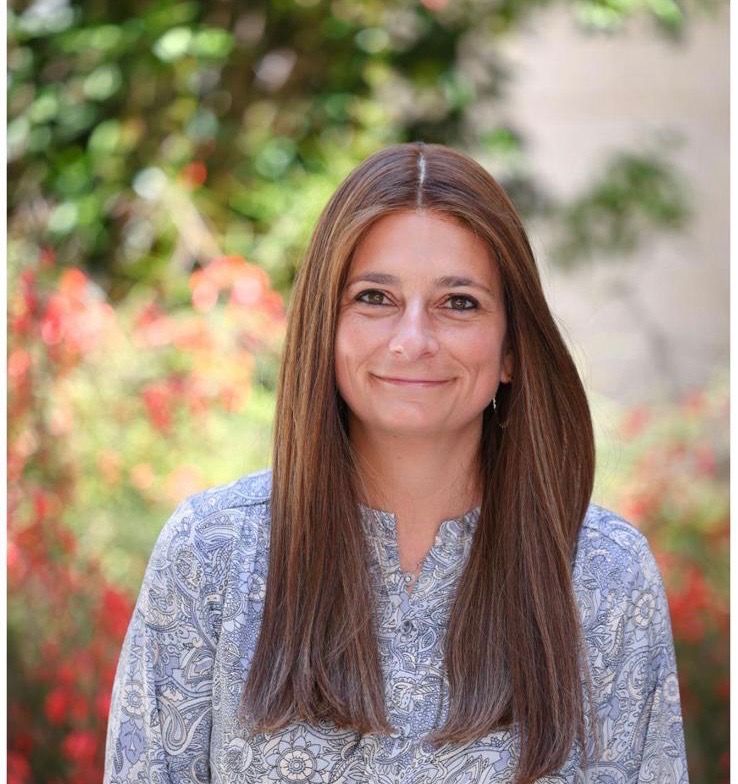He Said/She Said
DISCLAIMER: The following column is a composite of several different experiences I have had with clients. It does not depict a specific encounter. This story is not about you!
A couple’s ability to reach a satisfying compromise for both husband and wife is one of the hallmarks of a good marriage. A successful compromise is when each partner in a marriage gets at least some of what they feel they need to be happy. Not everything, but enough. Unfortunately, that middle ground, that meeting point, is not always an easy mark to hit, because sometimes even giving up an inch feels like too much.
In a relationship, if a person is unable to give up something as a matter of principle, then there is a much bigger issue to deal with. Being set in one’s ways and doing everything possible to resist accommodating one’s partner can be a sign of selfishness at best and narcissism at worst.
Sometimes, that “inch” feels like a major threat to one’s core happiness. It may reflect something far greater than the issue at hand. It can trigger feelings that are deeper, darker, even desperate. This seemed to be where Chaim’s resistance came from.
{He Said
Upon gathering the details of Chaim’s background, I learned a number of things. Chaim was a self-proclaimed “geek.” He never felt like the cool kid in class. He was and still is not particularly athletic or even coordinated. He was not popular, felt alone during much of his childhood, and distracted himself with studying and solo activities, such as reading and video games.
Meeting Adina was the best thing that ever happened to him. When they got engaged and subsequently married, he felt as if he’d won the jackpot! Chaim believed he was definitely “marrying up.” Though he described Adina as a superstar, she was also a serious student and spent most of her time studying.
Both Chaim and Adina eventually found well-paying jobs and worked hard to save money to buy a house in the suburbs—a dream both of them shared. When they landed in the Five Towns a few years ago, their dream came true.
“One of the attractions of the block we moved to,” said Chaim. “Was that within a few blocks in every direction was at least one shul. I decided to try them out one by one to see if I could find a place where I would feel comfortable. On my third try, I was in Heaven. I found myself surrounded by a group of young men who were very welcoming and friendly. Honestly, I never experienced such an outpouring of camaraderie before. I didn’t feel judged in any way or never made to feel not good enough. There was an immediate feeling of being ‘one of the guys.’
I was immediately encouraged to stay after shul to participate in the weekly kiddush. Though I’ve never been a drinker, over time I did find myself having a couple of shots at kiddush. Honestly, the whole scene felt great to me. It was a whole new experience, feeling like I belonged to a group. Adina and I did get invited over to some of their homes for Shabbos meals, and since we didn’t have many couple friends, I was excited to go. I thought Adina would be excited to go as well. But in no time, Adina was turned off to these people. She disapproved of their drinking, their boasting, their unrefined manner of speaking. I can’t say they were the most refined group of men I’ve ever met, but they were nice to me and that means a lot.
The reason why we’re here is because Adina wants me to end these relationships, to try another shul, and find a group of more refined men to daven with. As much as I want to make Adina happy, for the first time in my life, I actually feel comfortable and socially happy. I don’t think I can find it anywhere else. I’ve actually tried but haven’t felt welcome in any other shul I’ve gone to. Asking me to leave my present shul is like asking me to give up something that has become very precious to me.”
Adina began by describing a childhood that was similar to Chaim’s. She also did not see herself as particularly popular. However, the main difference between the two was that Adina was perfectly happy to spend a great deal of her time alone. She considered her two older sisters her best friends, enjoyed spending time with her mother, but otherwise was pretty self-contained despite not having a dearth of friends. Again, unlike Chaim, she never viewed herself as “less than” her classmates. She didn’t find them particularly interesting and preferred the company of a good book.
It became clear that Adina’s earlier years and lifestyle were a choice, whereas for Chaim, it was by default that he was alone so much of the time. After a bit of digging, it became clear that Adina could not empathize with Chaim’s experiences growing up. She could not truly understand what the big deal was with being left to your own devices.
“Okay,” I rolled up my sleeve and began. “Adina, can you please explain to me why you seem to be so adamant about Chaim changing shuls?” “Well,” she said, “as Chaim explained, the group of friends he made at shul are not the most impressive group of guys I’ve ever met. I don’t like their drinking. I don’t like their language, and I don’t like how they talk to their wives. Frankly, I can’t think of anything I like about them. And when Chaim is around them, he acts differently. Before he started going to that shul, I don’t even remember him ever having a drink. He used to make kiddush on grape juice. Now he has a few drinks on Shabbos and laughs at their stupid jokes and generally acts silly around them.”
Validating Adina, I remarked that it must be very uncomfortable having to socialize with couples that she doesn’t respect and has no interest in. Furthermore, I reassured her how I understood how it must feel weird to see her husband behaving in a way that she can’t recognize or relate to. But I was curious whether Chaim’s behavior, when they were alone, had also changed. After a brief time to reflect, Adina admitted that he was just as sensitive, respectful, and gentle as he had always been.
I then asked Adina if she could understand what this group of men meant to Chaim, and why he was so intent on holding onto their friendship. This is where the situation got a little sticky. “Not really,” she admitted. By her answer, it was clear that Adina could not understand why asking Chaim to leave his shul was such a major issue. Daven elsewhere? Walk away from this new, fulfilling aspect of his life that Chaim had come to cherish.
The matter was not as easy as she thought.
So, where does the compromise lie? What would it look like? Would Adina be happy if Chaim only attended the shul every other week? Would Chaim be happy if Adina agreed to socialize with his new friends only half the time they are invited to their homes? Somehow, these types of solutions only covered up a larger picture. Aside from Adina’s inability to fully grasp what this feeling of belonging, or “achdus” meant to Chaim, it seemed a much larger issue was at stake. A larger fear.
It eventually came out that Adina was afraid of Chaim changing his ways. And also, in a more subtle way, of Chaim preferring the company of others to her own. With time, Adina received the needed reassurance that Chaim was not so easily influenced by others, and though he could enjoy their good-natured banter, he would never actually become like his friends. He had no intention of changing his essential self, the man whom Adina had fallen in love with. As far as preferring their company over Adina’s, Chaim was quite adamant that that would never happen.
After a number of trials and errors, which included Chaim giving some of the other shuls more of a chance without success, Chaim and Adina eventually agreed that Chaim was entitled to daven where he felt warmth and acceptance, but he would not expect Adina to agree to lunch invitations. And though Adina could have been perfectly happy never acquiring “couple friends,” she would make a greater effort to befriend other young couples in the area with whom she felt more comfortable. Yes, a compromise was finally struck!












